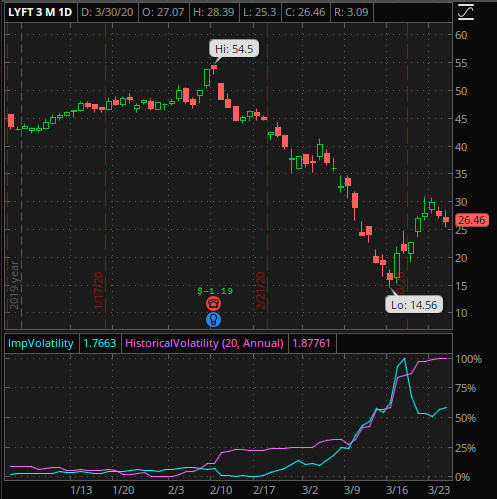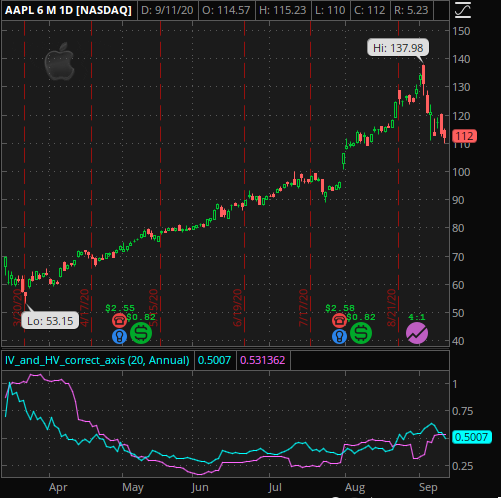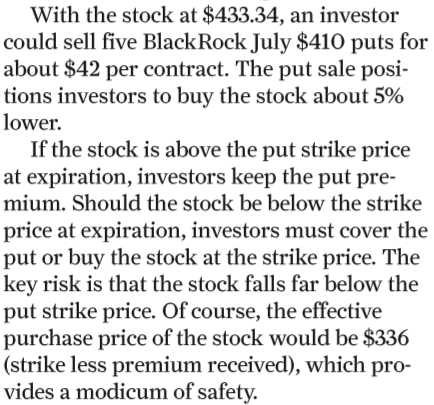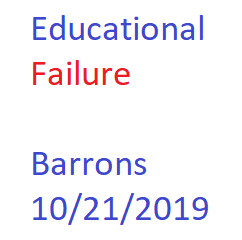When selling options, there is always a chance that the option owner can exercise early, leaving the option seller with stock that they weren’t anticipating – either 100 long shares if they sold a put, or 100 short shares if they sold a call. This can cause confusion, particularly if one doesn’t have the buying power to pay for the shares. In one tragic instance earlier this year, Alexander Kerns took his own life due to the buying power shown on his (misleading) screen after selling spreads.
Today, we will cover what happens if the short leg of a put spread is assigned before expiration and show that it is actually Good news for the option seller.
Traditional put spread:
- Sell 1 18 Sept AAPL 485 put for 17.35
- Buy 1 18 Sept AAPL 480 put for 15.30
- Total credit of 2.05
If held to expiration, what can happen?
- AAPL finishes > 485, we keep 2.05 for a $205 win.
- AAPL finishes <480, we lose 2.95 ($5 is the width of the strikes, minus the $2.05 collected) for a $295 loss
- AAPL finishes between 480 and 485 and we are assigned 100 shares of stock at $485.
In scenario 3, we’ll have $48,500 debited from our account and have 100 shares of AAPL. We’ll still have the 2.05 credit from selling the spread, so our Effective entry price is $482.95 (485-2.05). If AAPL expires >= $482.95, we’ll be profitable on our stock position, below $482.95 and we’ll be unprofitable on our 100 shares. We will now have an increased potential for loss on Monday, as our long put has expired worthless.
Unless one wants to take the 100 shares, it is recommended to close the position before the market closes on expiration to avoid dealing with the stock.
Early Assignment
While it is somewhat rare, there are times when a option holder may choose to exercise their option early. If a stock is hard to borrow (usually calls), if the remaining extrinsic value is incredibly low, there is a dividend (calls) or simply because the option holder is inexperienced, we may find that we’re holding shares that we weren’t expecting prior to expiration.
Don’t panic
Continuing with our example, let’s say that AAPL is trading at 460 on September 11th and we find that our short put has been assigned, changing our position to:
- Long 480 put
- Long 100 shares of AAPL at an entry price of $485
If held to expiration, what can happen?
- AAPL finishes at 485, our 480 put expires worthless, we sell the stock at close for break even, and keep the 2.05 credit for the initial spread – a $205 win.
- AAPL finishes <480, our 480 put expires in the money and we sell our shares at 480. We lose 2.95 – We bought the stock at $485, sold for $480, but received $2.05 in an initial credit. Total loss is $295.
- AAPL finishes between 480 and 485. We sell the stock at close, our 480 put expires worthless and we make money if the stock ends above $482.95, lose if it ends below $482.95.
Note that these three scenarios are Very similar to the initial put spread, with one important difference. This time, the first scenario only discusses if AAPL ends at $485. Look what happens if AAPL ends Higher than $485, for example:
4. AAPL finishes at $490. Our 480 put expires worthless, we sell the stock at close and take in an extra profit of $5/share, for a total win of $705 ($500 on the stock + $205 on the put spread).
Early assignment of puts in short put spreads Helps the option seller
Between when we are assigned on the short put and expiration, we have a “free shot” at upside in the underlying name. Our risk hasn’t changed.
This is too good to be true
There are some downsides, namely, you need the capital for the 100 shares. In this case, we’ve gone from a small margin requirement of less than $500 to needing $48,500 for the shares (for a cash account). If you don’t have the cash, you can simply close the position. If you receive a margin call, you will normally have two to five days to fulfill it, giving you a bit of time to see if you get ‘lucky’ and there is a big recovery on the underlying. You should still proactively close the position, though, as your broker may decide to close other positions to fulfill the margin call.
How about calls?
The process is the same for a short call spread, but there are a couple of significant differences:
- You will pay interest on the short shares. This can be quite expensive if the underlying is volatile and/or hard to borrow.
- You will be responsible for dividends. You will have to pay any dividends that occur while you hold the short stock. This is the most common reason you’ll be assigned on a short call and you’ll need to be aware when selling calls or call spreads anytime there is a dividend prior to expiration.
For both of these reasons, it is generally easier to simply close the position if assigned early.
Don’t Panic (Yes, I’m reusing this title)
When you sell options, you will occasionally be assigned. Once you have a good understanding of how options work, you’ll see that there is a Benefit to being assigned early on short puts when they are part of a spread. You will also learn to close calls before they are likely to be assigned or, if assigned, know how to handle it.
If you have questions, please reach out via email, Facebook, or Twitter.
Join Option Salary today and get trade ideas every week, with text alerts, personalized education, and more!



